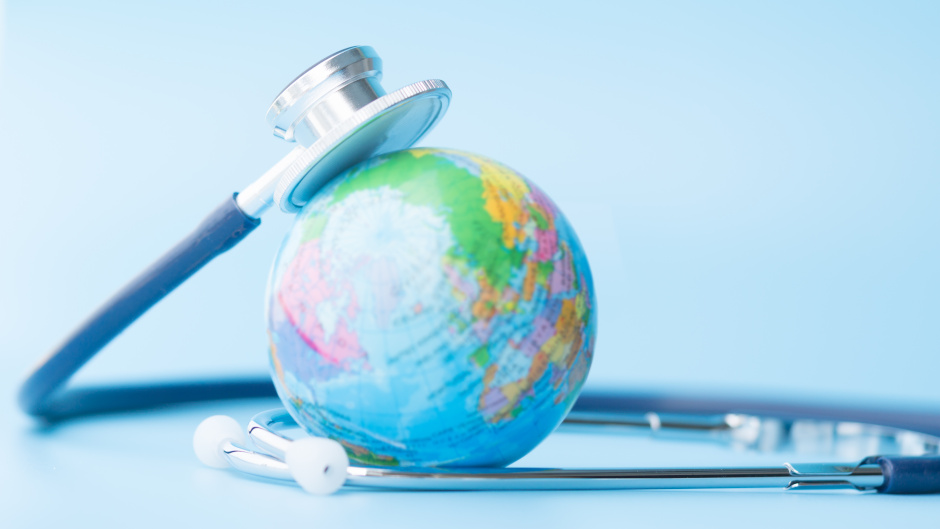Drew Aiken, J.D./LL.M ’12 in International Law, is a passionate advocate for health and human rights.
The Miami Law graduate recently returned from a second assignment with Médecins Sans Frontières/Doctors without Borders, where she was based in the Democratic Republic of the Congo.
The international medical humanitarian organization provides care to those most in need and works in some of the most challenging countries and contexts in the world, whether from conflict, displacements, natural disaster, or epidemic. “Even though MSF is perhaps best known for working in conflict and war zones, a big part of what we do is responding post-disaster and in other contexts where there are unmet needs,” explains Aiken. She supports this work as an advocacy manager. A key pillar for MSF is “temoignage,” a French word meaning to bear witness.
Aiken recently had the opportunity to coauthor a report, Sexual Violence in the Democratic Republic of Congo: The Critical Need for a Comprehensive Response to Address the Needs of Survivors. Sexual violence is a grave concern in the DRC, but care remains inadequately available, resulting in additional suffering by survivors. In 2020, 10,810 survivors of sexual violence accessed medical and/or psychological care with MSF support—nearly 30 per day, which MSF considers only the tip of the iceberg.
Aiken highlights the need for holistic, survivor-centered responses, which include medical, psychological, socio-economic, and judicial support. “While the physical and psychological impacts of sexual violence may be more well-known, due to high levels of stigma, rejection, and loss of livelihoods, socio-economic impacts are often severe," she says. "The reality is that survivors in DRC suffer twice, first due to the violence itself and then due to the lack of support available. Sexual violence is a medical emergency, requiring both immediate, as well as a comprehensive package of long-term care."
An alumna of the Miami Law Human Rights Clinic, Aiken credits the clinic as key to launching her passion for human rights and developing her skills in critical analysis and creative strategizing. At the clinic, she worked to halt deportations of U.S.-based Haitians, following the 2011 earthquake, particularly those with severe medical conditions, in partnership with FANM (Haitian Women of Miami) and other partner organizations. She further joined an information-gathering trip to the country to report on conditions and access to medical care. “We met with some of the families whose relatives had been deported and traveled to Haiti to understand and document the impact of these deportations on their lives and well-being which was used to provide information for the case/our advocacy,” she recounts. “That really solidified my interest in human rights.”
“The Miami Law Human Rights Clinic experience was absolutely foundational to the direction of my career,” writes Aiken. “I found the hands-on approach – field work in Miami and Haiti and working on cases in the Inter-American Commission on Human Rights – and the combination of theory and application to be especially beneficial.”
Aiken also remarks on the breadth of courses and experiences at Miami Law through the International Law LL.M. program, Human Rights Clinic, International moot court program, and HOPE public interest resource center, which “offer students opportunities to understand current and complex human rights issues and directly apply new skills through litigation, advocacy, and other tools with the support of experienced professors.” For instance, through HOPE during her 1L summer, she was able to participate in the Namibia Neutral Trial Observer Initiative, igniting her interest in human rights issues in sub-Saharan Africa.
Her first assignment with MSF took her to Malawi, where she worked on responses to advanced, late-stage HIV and TB projects supporting communities in a region where mortality is plateauing, rather than declining. “The program aimed to make sure people are referred to the services they need, ensuring early detection and diagnosis, and also providing a high level of care to stabilize patients and prevent mortality at the hospital level,” she explains. “The key is to work with all people, including targeted interventions for vulnerable communities such as prisoners and sex workers, without stigma and treating everyone with dignity and respect.” This approach is at the heart of humanitarian response and human rights advocacy.
In February, Aiken heads to her next assignment in Haiti.
Read more about Miami Law's Human Rights Clinic
Read more about Miami Law's International Law Program

